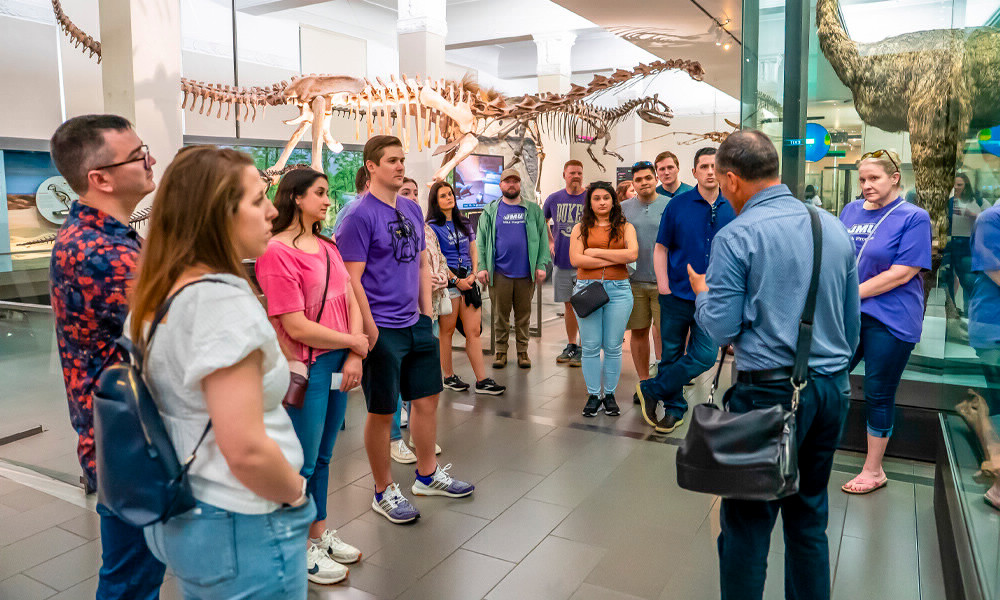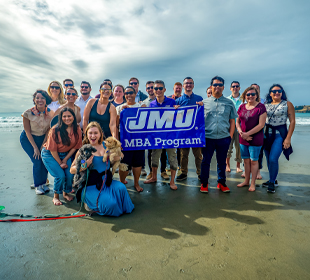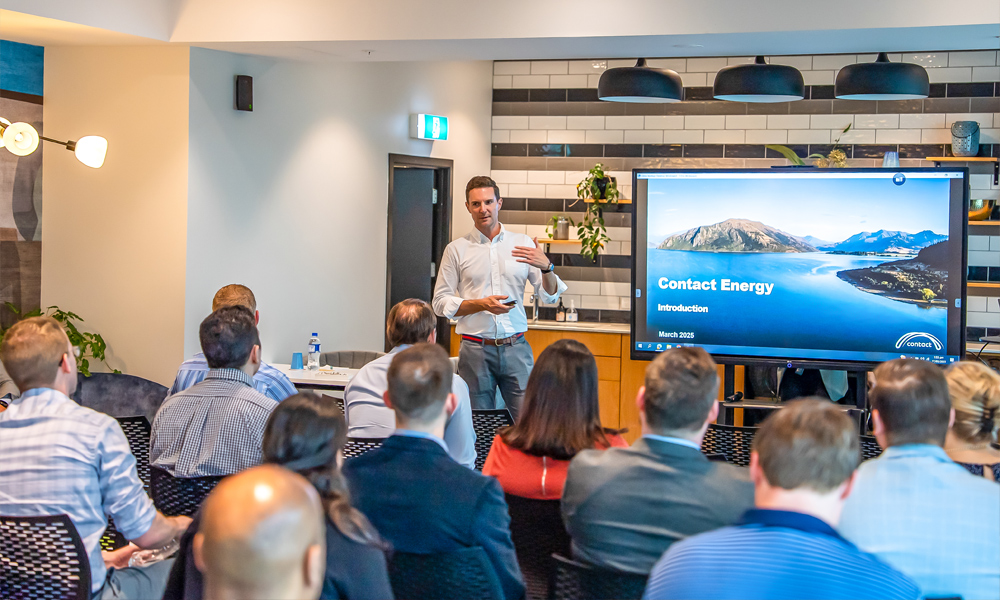MBA in New Zealand
News
SUMMARY: MBA 695 students spent their Spring Break learning about New Zealand’s business practices and culture.
Engaged learning is hallmark to a JMU education. For 15 years, JMU’s MBA students have left the classroom behind to take part in an immersive global learning experience through the MBA 695 course, and this year’s trip to New Zealand was no exception.
Available to students in all three concentrations, MBA 695 embarks on an international trip each March to a destination chosen by students. In the past, cohorts have traveled to places such as: China, Germany, Estonia, Denmark and Vietnam. This year’s travels took 34 students, plus a few MBA program faculty and staff, to New Zealand for a 10-day trip exploring the island nation.

MBA program Director, Matthew Rutherford, said, “The focus of the MBA 695 course is to help students understand how culture influences business practices. They meet with executives to discuss some of the unique issues involved with doing business in that country.”
While abroad, students have several opportunities to visit different companies, and this year’s trip included visits to The New Zealand Story, Contact Energy, Babich Wines, Sky City Entertainment and Margin Fuel. Unique this year was the chance to meet with two JMU alumni, Tighe Wall (‘04), chief technology officer at Contact Energy, and Charlie Daily (‘92), director and head of business development at Margin Fuel.
Company visits are the key component of the international experience. Before each meeting one group of students is tasked with preparing an overview of the business being visited and presenting the information to the rest of the group. This preview often includes background on the company, information on the industry and competitors and any challenges the company may be facing.
Jessica Sheffield, a MBA candidate with a concentration in Innovation, noted one particular stand-out feature in comparing New Zealand and the U.S. business environments: the emphasis on people. “Every business we met with really prioritized their employees and customers. Callum Mallet from Sky City Entertainment talked about their ‘obsessive focus on our people’ and customers, which was refreshing. In the U.S., I feel like there’s been a shift towards a more transactional approach, where efficiency often overshadows the human element. New Zealand’s focus on putting people first creates a more positive, trusting business environment, and I think it’s something the U.S. could definitely learn from,” she said.
In addition to company visits, MBA 695 places an emphasis on gaining a well-rounded knowledge of the country. Rutherford said, “We typically meet with some business leaders who are from the country we are visiting as well as some expats who can give an outsider's perspective on doing business in that country. To give students a better understanding of that nation’s unique climate, we also visit cultural sites and historical landmarks.”
During the group’s visit to New Zealand Story Group, CEO David Downs discussed the influence the indigenous Maori culture has on New Zealand's modern-day business practices. He emphasized four specific Maori cultural attributes: Pono - acting with integrity and honesty; Potikitanga - a childlike curious, ingenious and adventurous spirit; Manaaki - warmly welcoming others and building relationships based on respect and trust; Tiaki - a drive to care for people, place and planet. Professor Mert Tokman, noticing a moment of significant student engagement, said, “Students were so intrigued by this presentation that they brought up the impact of Maori culture on their business activities in all four following business visits.”

“While I had focused on the companies and researched their strategies in advance, I didn’t realize how deeply we’d experience the history and local culture,” said Sheffield. “The organizers did a fantastic job incorporating cultural elements like museum visits and meals, and we had local guides who provided great insights into the culture. It all made us feel fully immersed in the experience!”
This first hand exposure to how deeply cultural values shape business decisions exemplifies the power of immersive learning—something that simply cannot be replicated in a traditional classroom setting.
Opposed to traditional classroom learning, studying abroad offers dynamic, immersive experiences, allowing students to fully engage in new cultures and perspectives. Exposure to international markets, business practices and leadership styles allows students to develop a broader perspective on global commerce, enhancing their ability to navigate cross-cultural negotiations and adapt to different economic landscapes.
“Studying abroad is a great way to augment traditional educational methods. There is something about getting out of your comfort zone in a foreign country and meeting people from that culture that is different from reading about it or hearing about it in a class,” said Rutherford.
